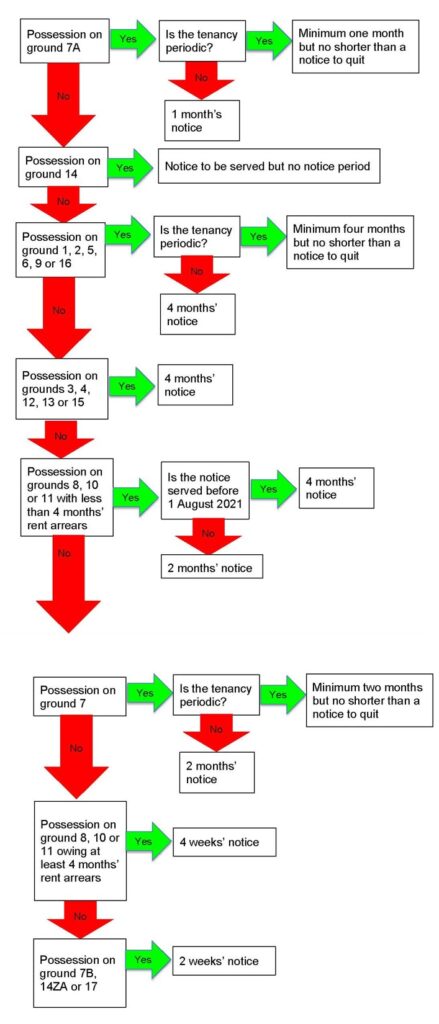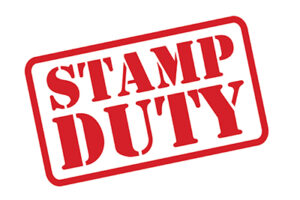The lifting of the tenant eviction ban on 1 June has come and gone and, across England at least, landlords are looking forward to being able to start pursuing possession claims. Some simply needed the bailiffs to start working again, whilst other may now want to start the notice process. Indeed, many might have held off serving notice since the announcement earlier in May that notice periods would reduce from six months to four months for most notices in England.
However, it is not quite as simple as that as not all notices have changed the length and if a section 8 notice is used, the combination of grounds can have a profound effect on the length of the notice.
Starting with the simple point, section 21 in most cases will fall from a minimum six months to a minimum four months. We say ‘minimum’ as if the rent was payable six monthly or annually then at least six months’ notice would still be required. The period in which court proceedings must be started also drops from ten months to eight.
Section 8 is much more complex as each ground has its own ‘length of notice’, but additionally the combination of grounds can change that length. The three rent arrears grounds have even more complex rules, depending on the amount of the arrears and when the notice is served. Indeed, in some cases of rent arrears there is little point in serving notice till August.
With all this complexity Training for Professionals have designed and provided a flow chart with simple questions about which grounds are being used and clear instructions about how long the notice will therefore have to be. You simply start in the top left corner and answer the first question Yes or No and follow the flow. We have also produced a 30 minute webinar talking you through the flowchart and providing practical examples.
For example, and using ground 8, 10 and 11 to illustrate, if the day you are serving notice there is less than four months of rent arrears, then today you have to give four months’ notice. If you wait till 1 August and serve the same notice it only has to be two months long. This gives a small advantage today but as time progresses the benefit will increase. Just to clarify one common confusion the Coronavirus Act did not change ground 8 only needing two months of rent to be ‘lawfully due and unpaid’. Therefore, if rent is due the 1 May and not paid and then due again on the 1 June and not paid, on 2 June you can serve your section 8 notice seeking possession on ground 8 (and probably including grounds 10 and 11 too). However today, because the total arrears are less than four months of arrears the notice will have to be four months long.
The trick is to find the best combination of grounds to give the best notice period and outcome. For example, a tenant owing two months of rent and the landlord also wants to move back into the property, could use ground 8, 10 and 11 for the rent and ground 1 for the owner occupier. However, depending on the level of the rent arrears, this might increase a four week notice to being a four month notice. Clearly this is not attractive. On the opposite side of the coin, if the tenant owes two months of rent arrears and you have had complaints from the neighbours or police about anti-social behaviour, this could reduce four months’ notice to no notice period at all. The flow chart and webinar guides you through all these permutations.
As an agent you may have a policy of not serving notice on behalf of the landlord. However, it is still important to understand these rules so that you can provide the right information and advice. For example, if the landlord asks you to send the rent account details to the solicitor for a possession action, if you understand that the neighbours’ complaints are relevant you might include that information so that the solicitor can decide if it is appropriate to include that information too.
Note that the changes introduced on the 1 June change again slightly on the 1 August (rent arrears of less than four months drops from four months’ notice to two months’ notice) and are expected to end on the 1 October, Coronavirus permitting!
David D’Orton Gibson is managing director of Training for Professionals.

Please note we are experts at serving these notices nationwide for you at very reasonable prices, call now to discuss 01455 444414.




